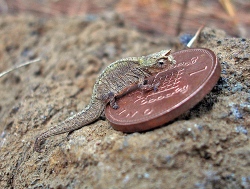
1685 Domenico Scarlatti born
1863 the Football Association formed in London
1936 Hoover Dam’s first electric generator starts
Austrian National Day
Oesterreich, as Germans call Austria, means Eastern Realm. It was a Celtic country until it was conquered by the Romans, then invaded by Bavarians, Slavs and Avars (Turks).
Charlemagne, King of the Franks and the Holy Roman Empire, conquered the area in 788 A.D. and introduced Christianity. It became a duchy and then was taken over by the Hapsburgs, rulers of Germany, from 1278 to WWI.
Austria occasionally had scuffles with the Ottoman Empire as they both encroached on Hungary. In 1699 Austria actually took over all of Hungary.
In 1815 Austria helped defeat Napoleonic France and emerged as one of the great European powers.
Germany was trying to become a unified country rather than a load of principalities. Austria could be part of it, but it didn’t really want to be – it wanted to be its own empire. Austria helped Prussia fight against Denmark to take Schleswig and Holstein from it, but then as Prussia and Austria couldn’t agree on who should then rule Schleswig and Holstein, Prussia and Austria had a war against each other. Austria lost and then definitely couldn’t be part of Germany.

Franz Joseph I
In 1867 Hungary and Austria agreed to go their separate ways, although they shared the king, Franz Joseph I.
Austria-Hungary included Croats, Czechs, Poles, Rusyns, Serbs, Slovaks, Slovenes, Ukrainians, Italians and Romanians, and they were all allowed to be educated in their own language and use their own languages in official settings, which was nice.
In 1908 Austria-Hungary annexed Bosnia and Herzegovina from the Ottoman Empire, causing the Bosnian Crisis. In 1914 a Bosnian Serb shot the Archduke of Austria-Hungary and heir to the throne, Franz Ferdinand, and Austria-Hungary declared war on Serbia, whereupon all the other countries said “Oh no you don’t!” and “Oh yes I will” and WWI started.
(…to be continued)
Famous Austrian composers include Haydn, Mozart, Beethoven and Strauss.

Musikverein in Austria.
Since 1939, the famous Vienna New Year’s Concert of the Vienna Philharmonic is broadcast from its Golden Hall to an audience of one billion in 44 countries.
Every year the Opera Ball sees everyone do a Viennese waltz.
Their folk music is called Schrammelmusik and their folk dances include the Schuhplattler.
It has big castles and palaces like the Schoenbrunn:

or the Belvedere:

Make a Sachertorte or an apple strudel or a Salzburger nockerl.
Nauru Angam Day (Nauruans celebrate having a population of more than 1,500) – see 17th May.





















